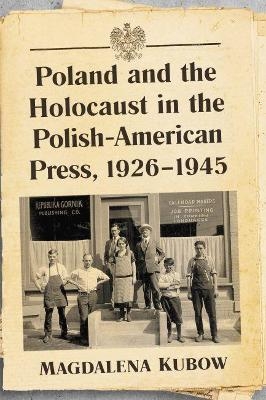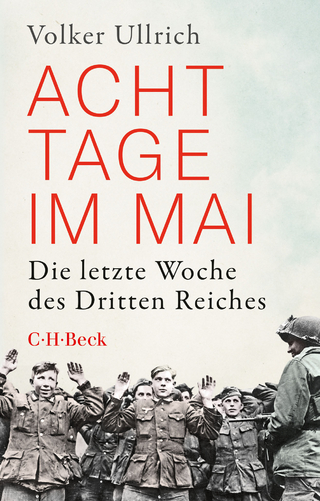
Poland and the Holocaust in the Polish-American Press, 1926-1945
Seiten
2020
McFarland & Co Inc (Verlag)
978-1-4766-7052-2 (ISBN)
McFarland & Co Inc (Verlag)
978-1-4766-7052-2 (ISBN)
Contrary to the common notion that news regarding the genocide was unavailable, news from Europe was often communicated to North American Poles through the Polish-language press. This work demonstrates that the Polish-language press covered seminal issues during the inter-war years, the war, and the Holocaust.
Contrary to the common notion that news regarding the unfolding Holocaust was unavailable or unreliable, news from Europe was often communicated to North American Poles through the Polish-language press. This work engages with the origins debate and demonstrates that the Polish-language press covered seminal issues during the interwar years, the war, and the Holocaust extensively on their front and main story pages, and were extremely responsive, professional, and vocal in their journalism. From Polish-Jewish relations, to the cause of the Second World War and subsequently the development of genocide-related policy, North American Poles, had a different perspective from mainstream society on the causes and effects of what was happening. New research for this book examines attitudes toward Jews prior to and during the Holocaust, and how information on such attitudes was disseminated. It utilizes selected Polish newspapers of the period 1926-1945, predominantly the Republika-Gornik, as well as survivor testimony.
Contrary to the common notion that news regarding the unfolding Holocaust was unavailable or unreliable, news from Europe was often communicated to North American Poles through the Polish-language press. This work engages with the origins debate and demonstrates that the Polish-language press covered seminal issues during the interwar years, the war, and the Holocaust extensively on their front and main story pages, and were extremely responsive, professional, and vocal in their journalism. From Polish-Jewish relations, to the cause of the Second World War and subsequently the development of genocide-related policy, North American Poles, had a different perspective from mainstream society on the causes and effects of what was happening. New research for this book examines attitudes toward Jews prior to and during the Holocaust, and how information on such attitudes was disseminated. It utilizes selected Polish newspapers of the period 1926-1945, predominantly the Republika-Gornik, as well as survivor testimony.
Magdalena Kubow is a writing center coordinator and writing instructor in Ontario, Canada.
Table of Contents
Acknowledgments
List of Illustrationsviii
Preface: The Value of Testimony
One—The Polish Press and Polish-Jewish Relations (1926–1929)
Two—Prelude to the Hitler Years (1929–1933)
Three—The Commencement of National “Cleansing” (1933–1936)
Four—On the War Path (1936–1939)
Five—Annihilation Becomes a Reality (1940–1945)
Six—Why the Debate of “Who Knew What, When?” Still Matters
Conclusion: A Human Issue
Chapter Notes
Bibliography
Index
| Erscheinungsdatum | 21.08.2020 |
|---|---|
| Zusatzinfo | 11 photos, notes, bibliography, index |
| Verlagsort | Jefferson, NC |
| Sprache | englisch |
| Maße | 152 x 229 mm |
| Gewicht | 286 g |
| Themenwelt | Geschichte ► Allgemeine Geschichte ► 1918 bis 1945 |
| Geschichte ► Teilgebiete der Geschichte ► Militärgeschichte | |
| Sozialwissenschaften ► Kommunikation / Medien ► Journalistik | |
| ISBN-10 | 1-4766-7052-8 / 1476670528 |
| ISBN-13 | 978-1-4766-7052-2 / 9781476670522 |
| Zustand | Neuware |
| Haben Sie eine Frage zum Produkt? |
Mehr entdecken
aus dem Bereich
aus dem Bereich
ein Psychologe erlebt das Konzentrationslager
Buch | Hardcover (2024)
Kösel (Verlag)
CHF 30,80
Mythos „Stauffenberg-Attentat“ – wie der 20. Juli 1944 verklärt und …
Buch | Hardcover (2024)
Goldmann (Verlag)
CHF 33,55
die letzte Woche des Dritten Reiches
Buch | Softcover (2023)
C.H.Beck (Verlag)
CHF 22,40


